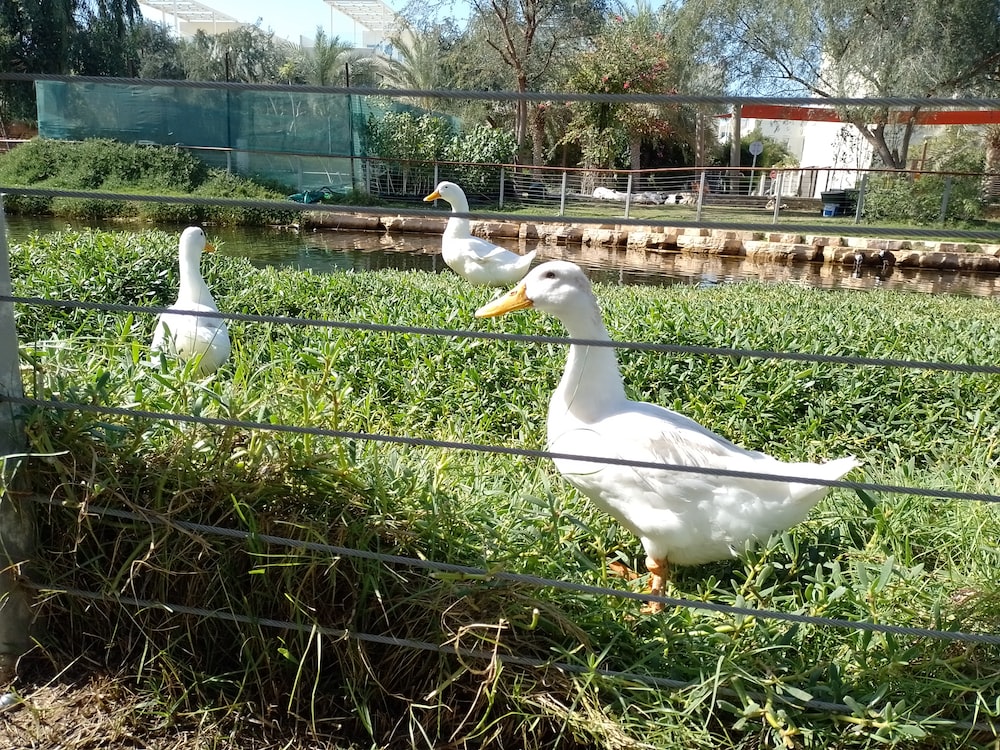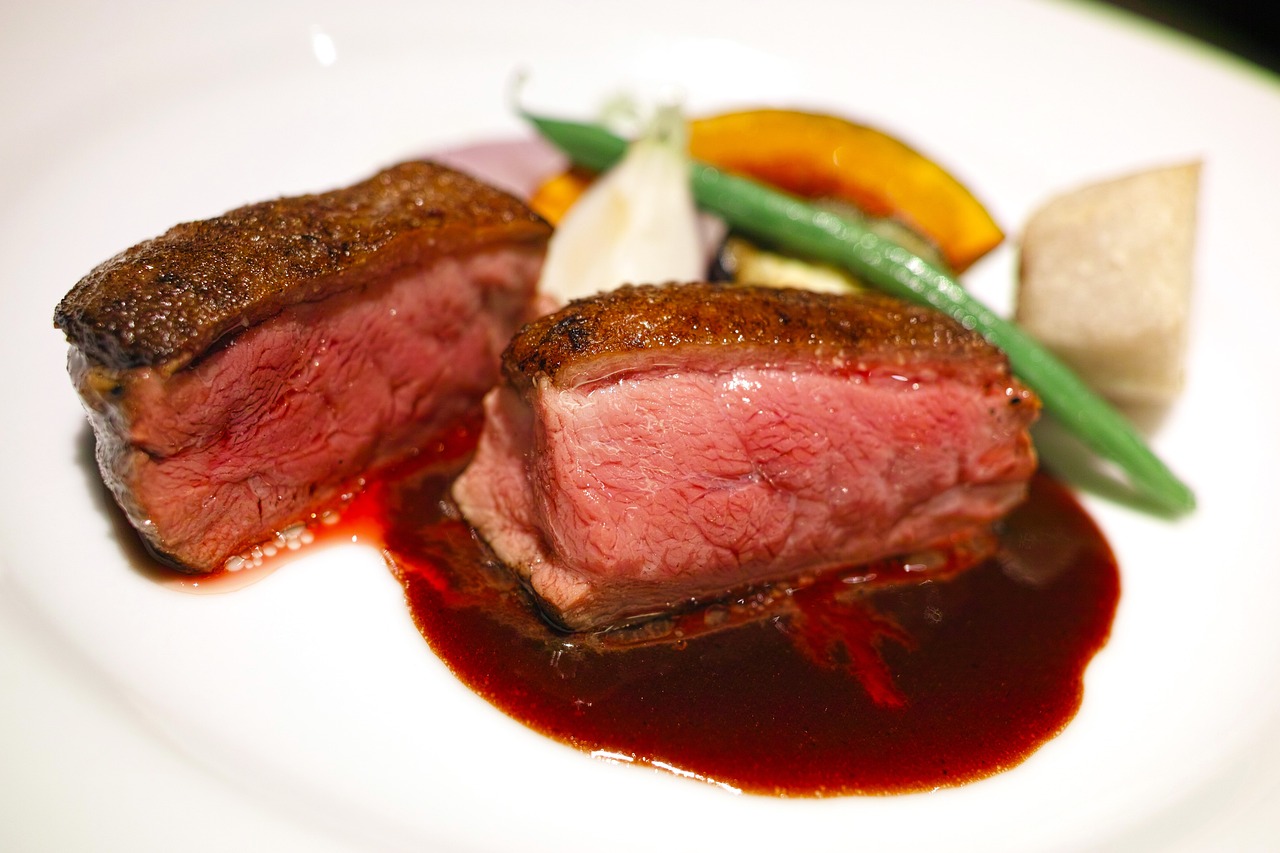
This post contains affiliate links where you can purchase our recommended products from our partner. Your purchase helps support our farm at no extra cost to you.
If you've found yourself wondering "Should I get ducks?" lately, you're not alone. Many aspiring homesteaders and seasoned farmers alike are considering the benefits of introducing ducks to their land. Ducks can be an excellent addition, providing not only eggs and meat but also valuable companionship and pest control.
But are ducks easy to take care of? And what exactly do they bring to the table? Dive in with us as we explore the reasons why adding ducks might just be the best addition decision for your homestead.
Caring for Ducks: It's Easy If You Get It Right
When weighing the pros and cons of adding ducks to your homestead, one significant advantage stands out: ducks are notably hardier than chickens. Their robust immune systems make them less susceptible to many common poultry diseases. This resilience can be attributed to their unique physiology and their love for water, which often keeps them cleaner. For the homesteader, this translates to fewer heartaches from losing treasured pets and a more economical experience, as there's less need to spend on medications and treatments. In essence, with ducks, you get a winning combination of health, longevity, and cost-effectiveness.

While ducks boast a strong constitution when it comes to health, they do come with specific dietary requirements that homesteaders must be mindful of. At the forefront is their need for niacin (vitamin B3), crucial for their proper growth and overall vitality. Additionally, ducks thrive best when provided with the ideal protein levels (17%-19%) in their feed. Without niacin, ducks can develop mobility issues, and too high of protein can cause angel wing in grow-outs, making it imperative for homesteaders that keep ducks to provide a well-balanced diet. Ensuring they receive these nutrients may require a bit more effort and attention than feeding other poultry, but luckily there are many waterfowl specific foods on the market, such as my duck's favored food, Nutrena Countryfeeds Duck Pellets.
Contrary to popular belief, you don’t need a sprawling pond for ducks to thrive on your homestead. However, one non-negotiable aspect of duck care is ensuring they have a consistent source of fresh water. Ducks have a particular behavior – they love to dip their beaks and dabble. This not only quenches their thirst but also helps them clean their nostrils and eyes, promoting good health. A deep dish or a shallow basin, refreshed regularly, can suffice. So while a picturesque pond is a delightful bonus, it's the simple act of providing clean, accessible water that truly keeps a duck content and healthy.
Getting Your Homestead Set Up For Ducks Is Easy
If you've ever kept chickens and are considering adding ducks, housing is one area where you'll notice a significant difference. Ducks, with their larger stature, don't quite mesh well with traditional chicken coops. But the good news? Ducks aren't divas when it comes to accommodations. A simple lean-to or a basic shelter is often all they ask for to keep them safe from the elements. And when it comes to bedding, these web-footed wonders are surprisingly low-maintenance. Unlike chickens who can be particular about their nesting spots, ducks are pretty accommodating. Whether you choose straw, hay, or wood shavings, ducks are often content with anything, making setting up their living quarters a breeze.

One of the standout benefits of keeping ducks on your homestead is their innate ability to serve as eco-friendly garden assistants. With an insatiable appetite for pests, ducks are natural foragers who will happily rid your garden of unwanted critters. And as they roam and rummage, they leave behind another gift: their droppings. Unlike chicken manure which often needs composting before it's garden-safe, duck poop can be used directly as a fertilizer. Rich in nutrients, it's a garden boost without the wait, providing plants with immediate nourishment while also ensuring fewer pests. It's a win-win for any green thumb!
Upsides and Downsides to Rearing Ducks
Ducks have a natural tendency to be caring and attentive mothers. Their maternal instincts are hard to match, ensuring that their ducklings are nurtured and protected. Interestingly, despite these strong maternal drives, ducks don't often go broody, striking a good balance for homesteaders who don't want their flock's laying patterns disrupted too frequently.
Beyond their motherly traits, ducks, when handled from birth, can be incredibly affectionate and cuddly companions. If your intent is to get a duck that has a friendly disposition be sure to check out our post on "What's the Friendliest Breed of Duck?" to find out which feathered breed you should look at.
Ducklings offer a distinct advantage for homesteaders: they mature at an impressively rapid rate. While chicks can take their time to grow and develop, ducklings can astonish with their quick-paced growth, often reaching their full size as early as 8 weeks. This not only means a faster turnover for those raising ducks for meat but also signifies earlier independence from supplemental heat. Their robust nature allows them to brave the outdoors sooner, cutting down on indoor brooding time. For those looking for efficiency in their poultry rearing, ducklings are the birds to get.
Finally, The Best Advantages to Ducks: Eggs and Meat
Duck eggs are a culinary treasure for many. Their rich, creamy yolk and slightly higher fat content make them an excellent choice for baking, often producing fluffier pastries and more sumptuous dishes. Furthermore, an interesting fact is that some individuals who are allergic to chicken eggs find that they can consume duck eggs without any adverse reactions.
However, there are a couple of things to note. Due to ducks' foraging habits, their eggs can sometimes be dirtier than chicken eggs, so a thorough cleaning might be necessary. Moreover, while many relish the distinct taste of duck eggs, they aren't everyone's cup of tea. A few people have reported mild stomach discomfort after consumption or a dislike for their unique flavor. As with any food, it's all about personal preference and one's individual constitution.

Lastly, duck meat offers a rich, sumptuous flavor that's often described as restaurant-quality protein. When you raise ducks for meat on your own homestead, you have the added benefit of knowing exactly where your food comes from, ensuring it's free from unwanted additives and raised in ethical conditions. Plus, with the ability to control their diet and environment, you can optimize the taste and tenderness of the meat to suit your palate. In short, keeping ducks for meat not only satiates your appetite but also adds a touch of gourmet luxury to your dining table.
If You're Not Already Convinced...
Ducks truly bring a unique charm and a host of benefits to any homestead. But I understand that caring for ducks can seem daunting to those who have never had them before. That's why our website is brimming with duck care resources, tailored to guide both novices and seasoned duck owners alike. Whether you're looking for day-to-day care tips or troubleshooting common challenges, we've got you covered. And if you're eager to hear from real-life duck owners, don't miss our comprehensive page on Recommended Facebook Groups where you can talk to other duck owners and get their advice. There's a ton of communities where you can ask questions, share experiences, and get a genuine feel for the joys and challenges of owning these delightful birds. All that to say, we 100% recommend that the next step in your homestead journey is diving into the world of ducks.

